VEGAS MYTHS BUSTED: Siegfried & Roy Bred Royal White Bengal Tigers
Posted on: September 29, 2025, 07:22h.
Last updated on: September 29, 2025, 07:40h.
- There’s no actual breed known as a “Royal White Bengal Tiger” — it’s instead a marketing term created by Siegfried & Roy
- White tigers are actually Bengal tiger mutations that suffer from a wide variety of genetic problems and maladies due to inbreeding
- The near-fatal tiger attack on Roy in 2003 served as a turning point in the public’s attitude toward exploiting wild animals for entertainment
When “Tiger King” protege Ryan Easley was killed by a tiger recently, it brought to mind the magic duo who reigned over Las Vegas from 1990 until 22 years ago this coming Friday. Though Siegfried & Roy were among the most beloved performers Las Vegas had ever known at the time, a myth they perpetuated since the 1980s was partially responsible for the conditions that led to Easley’s fatal mauling.
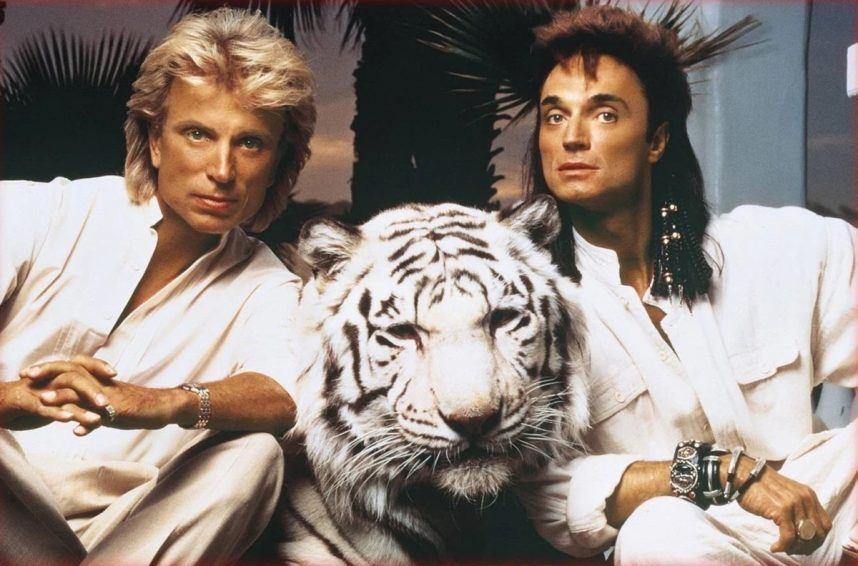
Siegfried & Roy frequently referred to their white tigers as “Royal White Bengal Tigers.” But there is no such officially recognized designation. The term was coined as part of the illusionists’ branding to make the public believe they were breeding and preserving a rare, magnificent, and naturally occurring tiger subspecies.
Lie of the Tiger
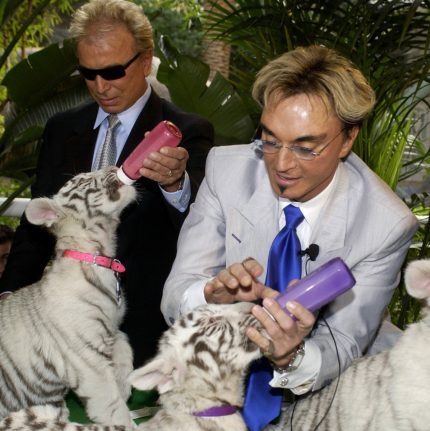
White tigers are Bengal tiger mutants, not a rare subspecies. They get their coloring from a recessive mutation, known as leucism, that causes a lack of the pigment pheomelanin, which gives tigers their orange color.
The mutation is only achieved through extensive human-engineered inbreeding. Parents are bred with their offspring, and siblings are bred with one another. In fact, all the white tigers currently in US captivity are believed to be descendants of a single male Bengal tiger named Mohan, who was captured in India in the 1950s and died in 1970.
In addition to whitening their coats, leucism imbues tigers with a host of debilitating genetic problems. These include spinal deformities, cardiac defects, immune deficiencies, cleft palates, and permanently crossed eyes. It also dramatically lowers their live birth rate, with multiple sources reporting an 80% neonatal mortality rate for white tiger cubs.
“Siegfried and Roy spent decades breeding animals prone to congenital defects so they could parade them in front of an audience,” Debbie Metzler, spokesperson for People for the Ethical Treatment of Animals (PETA), told Casino.org.
Harmful Illusion
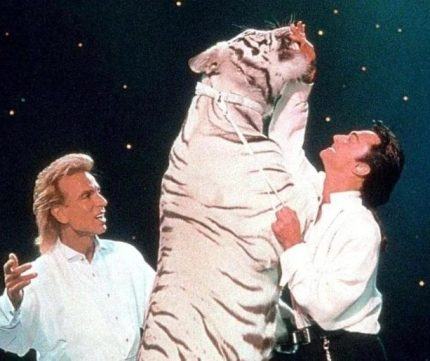
By promoting the narrative that they were involved in conservation and preserving a rare species, Siegfried & Roy misinformed the public about the true nature of their breeding program.
The money they made did not go to protecting endangered species in the wild. It went into buying and breeding more white tigers for their show and for their zoo at the Mirage, which was a cruel undertaking.
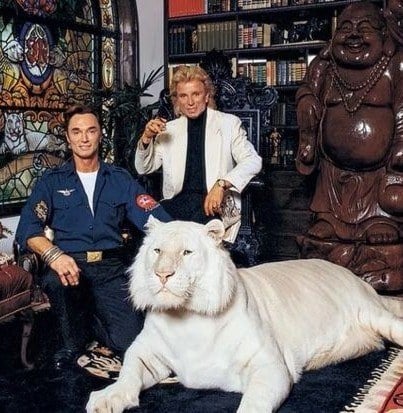
“Siegfried & Roy paid shady dealers to provide them with genetically deformed animals — some just days old — whose claws were amputated and who were crammed in kennels and zapped with electric prods,” said Metzler, whose PETA title is managing director of captive wildlife.
Siegfried & Roy’s act also had a net negative effect on tiger conservation in a broader sense.
“Their reckless portrayal of 600-pound tigers as ‘cuddly cats’ fueled the exotic ‘pet’ trade and inspired others to acquire dangerous wild animals,” Metzler said. “It reinforced the myth that tigers can be safely domesticated and created a market for captive-bred tigers, encouraging unscrupulous breeders and roadside zoos, including Joe Exotic’s G.W. Exotic Animal Park — from which Ryan Easley acquired tigers — to intensify inbreeding to create more white tigers.”
Captive-bred white tigers serve absolutely no conservation or educational purpose, according to PETA.
Forcing animals to perform in magic tricks or keeping them in small displays for tourists to gawk at teaches the public nothing about these animals or their natural behavior,” Metzler said. “Experts agree that people who spend money to see white tiger shows are less likely to gain an understanding of the real challenges tigers face in nature.”
White tigers’ lack of genetic diversity and resultant physical afflictions also remove them and their offspring from consideration for any possible release programs.
The only reason white tigers are bred today is because they’re incredibly lucrative for breeders and exhibitors, who charge visitors at entertainment venues to play with cubs as photo ops. Once cubs age out of this purpose, they’re either sold to the general public as “pets,” warehoused, or bred to create the next generation of money-making white tiger cubs.
Changing a Tiger’s Stripes
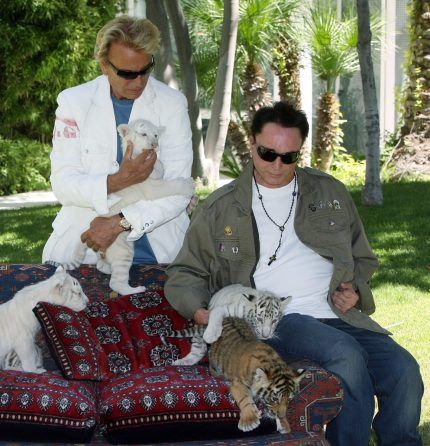
The shocking 2003 attack by Mantacore, Roy Horn’s most beloved tiger, that ended Siegfried & Roy’s performing career was a tragedy for Horn. He was left permanently disfigured after nearly dying of his injuries.
But it was a blessing, in a way, for the tigers. That’s because it served as a turning point in the public’s attitude toward exploiting wild animals for human entertainment.
“It moved the needle toward what audiences know today — that wild animals are not wind-up toys,” Metzler said. “And it’s why dangerous spectacles like Siegfried & Roy’s have all done a disappearing act from the Strip.”
The mauling heard around the world helped lead the Association of Zoos and Aquariums to ban its members from breeding white tigers in 2011. And it helped lead to the passage of the Big Cat Public Safety Act, which bans private ownership of big cats and direct public contact, in 2022.
That was the same year that Siegfried & Roy’s Secret Garden was shuttered at the Mirage and its animals got relocated to legitimate sanctuaries. Though that was primarily because MGM Resorts sold the property to Hard Rock International, a brand that had no use for displaying live animals, things were seriously headed in that direction anyway.
“Forcing tigers and other big cats to perform demeaning tricks and displaying them in cramped enclosures next to a hectic, noisy casino denies these complex, naturally far-ranging animals any semblance of a normal life,” Metzler said. “PETA applauds Sin City for closing the curtain on big cat shows.”
Look for “Vegas Myths Busted” every Monday on Casino.org. Visit VegasMythsBusted.com to read previously busted Vegas myths. Got a suggestion for a Vegas myth that needs busting? Email corey@casino.org.
No comments yet